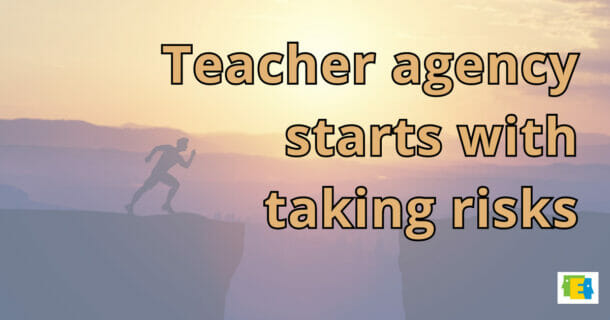How Video Analysis Helps University of Alaska Southeast Build Teacher Agency
Teacher agency is about educators taking the driver’s seat of their own learning and development.
When providing professional learning opportunities, teachers can’t simply be on the receiving end – they must engage constructively for truly effective instructional growth.
How can teacher prep programs offer the type of learning experiences that support aspiring teachers’ inquiry into their teaching practice?
At the recent American Association of Colleges for Teacher Education (AACTE) 75th Annual Meeting in Indianapolis, University of Alaska Professors Lisa Richardson and Cathy Coulter presented Building Teacher Agency & Equity Through Video Analysis.
The two shared how video analysis, implemented via Edthena Video Coaching, helped structure reflective experiences for teaching candidates that drove teacher agency.
Check out the video of the presentation above, or keep reading for how video analysis supports stronger and deeper educator reflection and development at UAS.
Cultivate teacher agency through collaborative video analysis

University of Alaska Southeast Professor Lisa Richardson coordinates the reading specialist program for the state and noted:
We needed to build a community and support teachers in taking risks.
Having new teachers try new strategies in their teaching is a key part of teacher agency. Teachers must feel comfortable being vulnerable and testing out different techniques.
What helped create a safe professional learning environment?
Video analysis was key for the UAS program.
Using Edthena Video Coaching, candidates across the state, usually separated by geography and differences in unique school contexts, were able to step into each other’s classrooms virtually.
In the Edthena platform, educators can record, share, and comment on videos of their teaching.
With these recorded video artifacts, teaching candidates reflected on their own teaching, as well as received feedback on their practices from peers and coaches.
Often candidates saw something they hadn’t noticed in the moment in their classroom. The evidence provided by video analysis helped teachers truly connect their teaching moves to student actions.
In addition, working collaboratively to watch each other’s videos and give feedback to one another helped candidates build community throughout the program.
“There’s so much power in taking time to individually reflect, and to have someone to talk something through with and not feel so isolated. These opportunities to build professional communities across the state are huge,” remarked Dr. Richardson.
Professional learning experiences must allow teachers to feel safe being vulnerable about their areas for growth. With the self-reflection and collaborative nature of video analysis at UAS, teachers were more likely to take risks in their instruction in an ongoing way.
Reflecting on classroom videos drives teacher inquiry into teaching practices
Teaching candidates’ classroom videos offer unbiased evidence for more productive conversations about pedagogy and learning in action.
This is a great start to having teachers reflect on their own teaching honestly and give each other feedback rooted in evidence.
The key lever in building teacher agency, however, is repeating these practices: ongoing cycles of video analysis.
Engaging in multiple cycles of video analysis during a semester enabled candidates to notice patterns and try different strategies throughout the year.
“Candidates have an authentic purpose and that emerges over time. We’re really consistent about curiosity driving their next steps,” said Professor Richardson.
Often, teaching candidates in the UAS program would watch one video, notice something about their teaching, and use that to determine what to videotape and focus on for the next time.
“It’s really an iterative process. There’s a lot of change in [candidates’] self-concept as a teacher over time,” said Professor Coulter.
The professors shared some questions that helped their teachers engage in productive reflection and discourse:
- What are you curious about?
- What do you want to learn about your students?
- What do you want to learn about your own practice? How are you connecting that to the research we’re learning?
With robust discussions taking place, teaching candidates took charge of their own inquiry into their teaching and worked constructively with one another.
More teacher reflection and collaboration, more teacher agency
Teacher agency is about taking charge of one’s own learning and making intentional choices to further it, instead of simply “getting” professional development.
By engaging in ongoing cycles of video analysis and reflection, University of Alaska teaching candidates were empowered with ownership over their professional growth. This also created a supportive and collaborative community throughout the program.
Video reflection and analysis support culturally responsive practices, too. Check out our blog post: 12 Questions to Ask When Reflecting on Culturally Responsive Teaching


